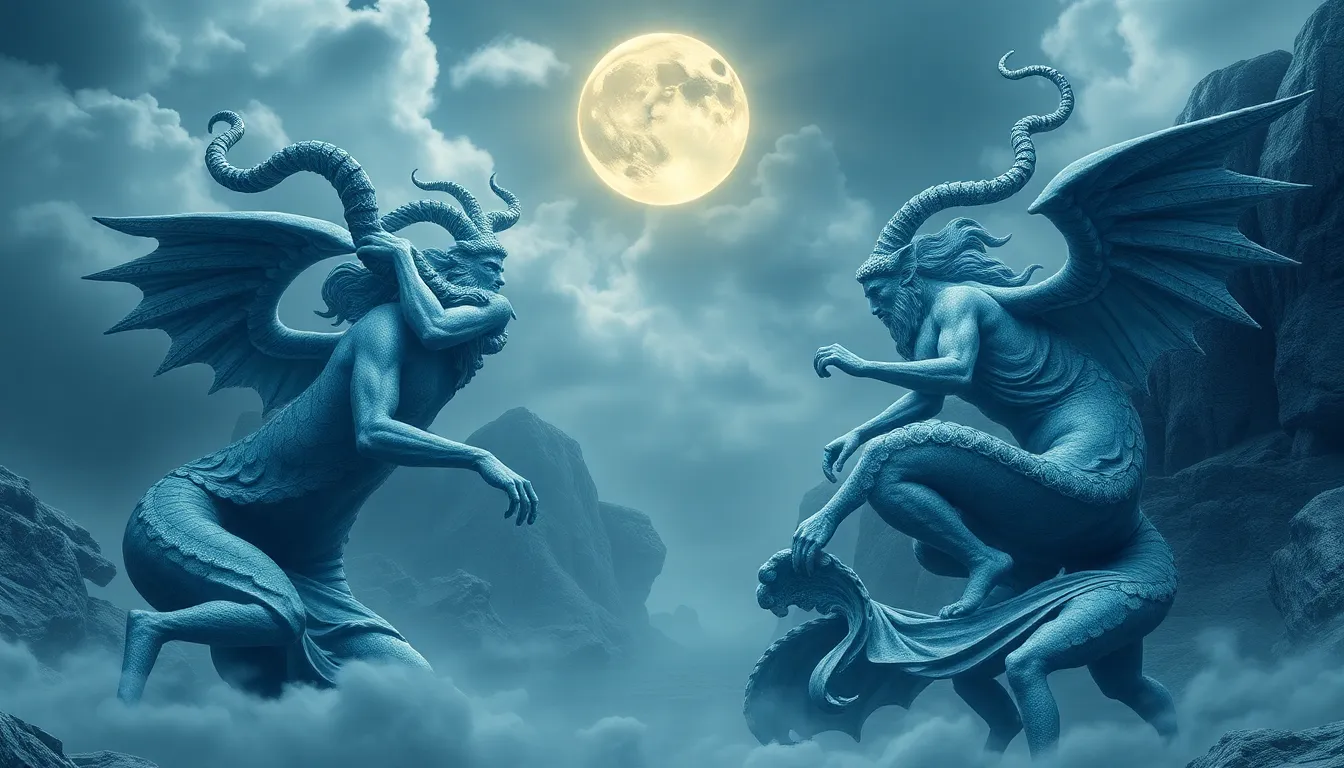Gorgons and Their Role in the Concept of Fate and Destiny
I. Introduction
In Greek mythology, Gorgons are often depicted as fearsome creatures with snakes for hair and the ability to turn anyone who gazes upon them into stone. The most famous of these Gorgons is Medusa, whose tale has transcended time and continues to captivate audiences. Beyond their terrifying appearance, Gorgons also embody complex themes of fate and destiny, which were significant concepts in ancient cultures.
Fate and destiny in ancient Greek thought were often seen as predetermined paths that individuals could not escape, influenced by the whims of the gods and the nature of the universe. This article explores how Gorgons symbolize the interplay between fate and individual choices in myths, illustrating the tension between predetermined outcomes and personal agency.
II. The Mythological Origins of Gorgons
The origins of Gorgon myths can be traced back to ancient Greece, where these creatures were part of a broader narrative involving divine punishment and transformation. Gorgons represent the darker aspects of existence, often serving as a warning against hubris and moral transgressions.
Key figures among the Gorgons include:
- Medusa: The most famous Gorgon, who was transformed from a beautiful maiden into a monster as punishment from Athena.
- Stheno: Known for her strength and ferocity, she is often depicted as the most powerful of the three Gorgons.
- Euryale: The sister of Stheno, known for her terrifying appearance and the ability to strike fear into the hearts of mortals.
The transformation of Gorgons from beautiful maidens to monstrous beings signifies a profound change in their fate, suggesting that one’s destiny can be altered through the actions and decisions of others, particularly the gods.
III. Gorgons as Symbols of Fate
The gaze of a Gorgon, which petrifies those who look upon it, serves as a powerful metaphor for the inescapability of fate. Just as one cannot avoid the consequences of encountering a Gorgon, individuals in mythology often find themselves trapped by the predetermined paths laid out for them.
In various Greek tragedies, Gorgons play a critical role in shaping the destinies of heroes and mortals. For example, the myth of Perseus depicts the hero’s quest to slay Medusa as both a literal and symbolic battle against fate. By confronting Medusa, Perseus not only seeks to claim glory but also grapples with the implications of his actions and their consequences.
Specific myths showcasing Gorgons include:
- The tale of Perseus, who must navigate the dangers of the Gorgon’s gaze to retrieve the head of Medusa.
- The story of Athena’s curse on Medusa, illustrating how divine intervention can alter one’s fate dramatically.
IV. The Dichotomy of Free Will and Predetermined Destiny
The Gorgons present a fascinating dichotomy between free will and predetermined destiny. Characters who confront Gorgons, such as Perseus, are often faced with critical choices that define their fates. These encounters highlight the tension between making individual choices and the overarching influence of fate.
When faced with the threat of a Gorgon, heroes often must make split-second decisions that can lead to triumph or disaster. For instance:
- Perseus: His choice to utilize reflective surfaces to avoid Medusa’s gaze exemplifies the use of cunning to confront fate.
- Others, such as those who succumb to fear, serve as reminders of how inaction can lead to disastrous outcomes.
These narratives suggest that while fate may set the stage, individual actions can influence the course of destiny.
V. The Gorgon as a Cautionary Figure
Gorgons also serve as cautionary figures within Greek mythology, imparting moral lessons derived from their encounters with mortals. The consequences of hubris, particularly in relation to the divine, are often highlighted through Gorgon myths. For example:
- Medusa’s transformation is a direct result of her pride and the violation of sacred spaces.
- The tragic fate of those who encounter Gorgons without respect for the gods serves as a warning against arrogance.
Through these stories, Gorgons reflect societal fears regarding fate and morality, emphasizing the need for humility and respect for the natural order.
VI. Interpretations of Gorgons in Modern Culture
In contemporary literature and media, the Gorgon myth has seen various adaptations and reinterpretations. Modern portrayals often explore themes of empowerment and identity, allowing Gorgons to represent the struggle against societal norms and expectations.
Furthermore, Gorgons have become symbols in feminist and psychological contexts, addressing issues of female rage and the complexities of identity. These interpretations highlight the ongoing relevance of Gorgons in discussions of fate and destiny.
VII. Gorgons and the Philosophical Perspectives on Fate
The philosophical implications of Gorgon myths extend into theories of fate and free will. Various philosophical frameworks, such as existentialism and determinism, provide insight into the nature of human agency when confronted with overwhelming forces like destiny.
In the context of existentialism, the Gorgon symbolizes the external pressures that constrain individual freedom, while in determinism, the myths suggest that the paths of individuals are often set by forces beyond their control. This duality invites deeper reflection on the human condition and the balance between fate and free will.
VIII. Conclusion
In summary, Gorgons serve as potent symbols within Greek mythology, embodying the complex relationship between fate and individual choices. Through their myths, we gain insight into the struggles of heroes and mortals as they navigate the challenges of destiny.
The enduring legacy of Gorgons in myth and culture continues to inspire discussions about the nature of fate, morality, and the human experience. Ultimately, the balance between predetermined paths and personal agency remains a timeless theme that resonates across generations.




